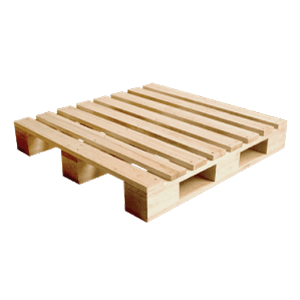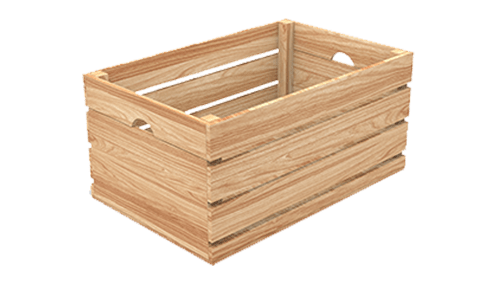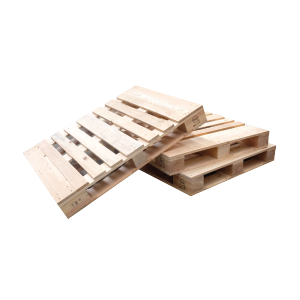EPAL pallets are a critical component of logistics and supply chain operations in Malaysia, as they play an essential role in facilitating international trade. The EPAL pallet not only ensures the safe transportation and storage of goods but also has a significant impact on international trade in Malaysia because of its specifications. In this article, we will explore how EPAL pallet specifications impact international trade in Malaysia.
Also read “Leading Wood Pallet Supplier in Malaysia”
EPAL Pallet Specifications
EPAL pallets, also known as Euro pallets, are standardized wooden pallets that are used for shipping goods throughout Europe and other parts of the world. These pallets are built according to specific EPAL pallet specifications to ensure consistency in size, weight, and quality.
The standard EPAL pallet measures 800mm x 1200mm x 144mm and has a maximum weight capacity of 1500kg. Furthermore, the EPAL pallet weight is 25 kg approximately. Every EPAL pallet produced must meet strict quality requirements, including heat treatment to prevent the spread of pests and insects.
EPAL Pallet on International Trade in Malaysia
First, EPAL pallets have a positive effect on international trade in Malaysia. EPAL standardized dimensions and pallet capacity limits make planning and executing shipments easier for companies. The uniform usage of EPAL pallets can also reduce expenses and increase efficiency in the supply chain. In addition, the use of standard pallets also makes it easier for companies to comply with international trade regulations, because many countries have similar pallet specifications.
Second, EPAL pallets are recognized internationally, and this recognition helps to facilitate trade between Malaysia and other countries. Many countries recognize EPAL pallets as a reliable and safe option for transporting and storing goods. This recognition makes it easier for Malaysian companies to export their goods to these countries, as they do not have to worry about whether their pallets will meet the requirements of the receiving country. This recognition also helps to build trust between trading partners, which can lead to long-term business relationships.
Also read “Tips to Avoid Damaged Goods During Shipment”
Third, compliance with EPAL pallet regulations can help Malaysian companies to avoid trade barriers. Many countries have strict regulations regarding the use of pallets, and failure to comply with these regulations can result in trade barriers. For example, some countries require pallets to be heat-treated to prevent the spread of pests and diseases. By using EPAL pallets, Malaysian companies can ensure that their pallets comply with these regulations and avoid any trade barriers that may arise.
Lastly, the use of EPAL pallets can help to reduce the environmental impact of international trade. EPAL pallets are reusable and recyclable, and this helps to reduce the amount of waste generated by the logistics industry. Additionally, the standardized dimensions of EPAL pallets make it easier for companies to optimize their transportation operations, reducing the number of trips required and the associated environmental impact.
The standardization of EPAL pallet usage, international recognition, compliance with regulations, and environmental benefits all contribute to the facilitation of trade between Malaysia and other countries. Malaysian companies that use EPAL pallets can benefit from the increased efficiency of commodities distribution and reduced environmental negative impact. If you need EPAL pallets in Malaysia, look no further than BMR. BMR has supplied EPAL pallets both to Malaysia and overseas.
Contact us here!












